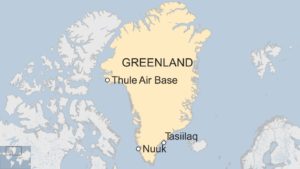by Prof. Lindzen, Apr 7, 2021 in WUWT/Clintel
The Irish Climate Science Forum (ICSF) in cooperation with CLINTEL hosted a lecture by the world-renowned climate scientist Richard Lindzen. The online lecture was attended by around 200 people from around the world (including a group of climate activists who disturbed the talk. The recorded talk can be viewed here.
Professor Lindzen kindly agreed that his written speech could be posted here at CLINTEL. It follows below.
Richard S. Lindzen, Professor Emeritus of Atmospheric Sciences, MIT
For about 33 years, many of us have been battling against climate hysteria. We have correctly noted
The exaggerated sensitivity,
The role of other processes and natural internal variability,
The inconsistency with the paleoclimate record,
The absence of evidence for increased extremes, hurricanes, etc. and so on.
We have also pointed out the very real benefits of CO2 and even of modest warming. And, as concerns government policies, we have been pretty ineffective. Indeed our efforts have done little other than to show (incorrectly) that we take the threat scenario seriously. In this talk, I want to make a tentative analysis of our failure.
…
by L. Peter, Nov 2019 in BBCNews
Denmark has for the first time put mineral-rich Greenland top of its national security agenda, ahead of terrorism and cybercrime.
The Defence Intelligence Service (FE) linked its change in priorities to US interest in Greenland, expressed in President Donald Trump’s desire to buy the vast Arctic territory.

Greenland is part of Denmark, but has significant autonomy, including freedom to sign major business deals.
China has mining deals with Greenland.
The FE’s head Lars Findsen said Greenland was now a top security issue for Denmark because a “power game is unfolding” between the US and other global powers in the Arctic.
In August the Danish government dismissed as “absurd” President Trump’s suggestion of a US-Denmark land deal over Greenland.
The US interest in Greenland goes back decades. The US has a key Cold War-era air base at Thule, used for surveillance of space using a massive radar. It is the US military’s northernmost base, there to provide early warning of a missile attack on North America.
Why the new focus on Greenland?
Greenland’s strategic importance has grown amid increased Arctic shipping and international competition for rare minerals. Arctic waters are becoming more navigable because of melting ice, linked to global warming.
…
by P. Homewood, Mach 26, 2021 in NotaLotofPeopleKnowThat
Absolute sea levels are rising by about 2mm a year, yet the land is subsiding by 2.2cm a year. A small part of this is due to isostasy, but most is evidently the result of “dewatering”, what we would call water extraction. (see here)
Whatever problems farmers in Bangladesh are having, it has nothing to do with climate change.
…
by Cap Allon, April 6, 2021 in Electroverse
Land masses across the northern hemisphere are experiencing a true taste of the GRAND SOLAR MINIMUM this spring, as while brief pockets of heat have intermittently prevailed, Arctic cold has never been far away, forever-threatening to wipe out those tender early-season crops that have been “tricked” into sprouting.
Overall, Earth’s temperature is falling (the UAH for March 2021 was 0.01C BELOW 30-year baseline), but brief pockets of heat will ALWAYS occur–even during the depths of an ice age. It is actually these swings between extremes that will hasten the failure of our modern, and surprisingly fragile, food production systems — constants are workable, even if those constants are cold, it is climatic unpredictability and extreme flip-flopping that is a growers most bitter foe.
EUROPE’S POLAR COLD TO INTENSIFY THROUGH APRIL
Recently, Europe has suffered a sharp reversal of fortunes — the continent has shifted gears, going from enjoying some of its warmest March temperatures on record, to a historic blast of polar cold and snow.
The low solar activity we’ve seen over the past few years has weakened the jet stream, reverting its usual strong zonal flow to more of a wavy meridional one. At the end of March, this flow was pulling warm African air anomalously far north, which resulted in the likes of Holland, Germany, France, and Belgium registering some of their warmest March temperatures ever recorded; and now, barely a week later, this loosey-goosey jet stream has conspired to drop brutal, record-breaking Arctic air over these exact same regions.
…
…
See also March Weather Past & Present
La géologie, une science plus que passionnante … et diverse

